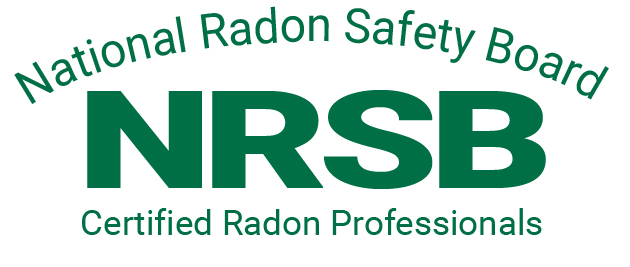Radon is a colorless, odorless gas that can seep into homes through the ground. It is a natural byproduct of the breakdown of uranium in soil and rocks. Exposure to high levels of radon can increase the risk of lung cancer, especially for smokers. According to the Environmental Protection Agency, radon is the second leading cause of lung cancer in the United States. Testing your home for radon is crucial to ensure your family’s safety.
Radon is a colorless, odorless gas that can seep into homes from the soil beneath. Radon testing is crucial for home safety because prolonged exposure to high radon levels can lead to lung cancer. Testing for radon allows homeowners to determine if their living environment is safe from this harmful gas. Our Certified Master Inspectors are members of the National Radon Safety Board.

They are Certified Radon Professionals trained to conduct accurate radon tests, providing valuable insights into the radon levels in your home. Testing for radon is a proactive step towards ensuring the well-being of your family and creating a healthy living space.
A Certified Master Inspector is a professional in the home inspection industry who has achieved the highest level of certification. They have undergone extensive training and have demonstrated a high level of skill and expertise in inspecting homes for potential issues. Certified Master Inspectors are well-versed in identifying various problems in a property, providing comprehensive reports, and offering valuable insights to clients. Their certification signifies their dedication to upholding industry standards and delivering top-quality service to homeowners.
When it comes to testing for radon in your home, hiring a Certified Master Inspector can provide you with valuable expertise. These professionals are trained to accurately assess your property’s radon levels, ensuring the safety of your living environment. By engaging a Certified Master Inspector, you can have confidence in the reliability of the radon testing results and the effectiveness of any necessary mitigation efforts.
Radon testing is a straightforward process that involves placing a testing device in the lowest livable level of your home for a specified period. This device will then measure the level of radon gas present in your home. Once the testing period is complete, the radon testing results are sent out. If the results show high levels of radon, it is crucial to take steps to mitigate the issue to ensure the safety of your household.
Radon inspections are crucial to detect any harmful levels of radon gas in your home. Through regular inspections, you can ensure the safety of your living environment and protect your family from potential health risks associated with radon exposure. Regular radon inspections help you to:
Radon levels in homes can be influenced by the geology of the area where the house is located. Factors such as the soil composition and groundwater can affect the radon levels. Additionally, the construction materials used in the home can play a role in the presence of radon. Cracks in the foundation and poor ventilation can also contribute to higher radon levels indoors. It’s essential to understand these factors to ensure a safe living environment for you and your family.
Radon test results are measured in pCi/L, which stands for picocuries per liter. The EPA recommends taking action if the test result shows (four 4pCi/L or higher). Levels below this are still concerning but may not require immediate action. If the test result is high, consider contacting a professional radon mitigation expert to reduce the radon levels in your home. Protect your health and your loved ones by promptly understanding and responding to radon test results.
Radon is a colorless, odorless gas that can seep into homes through the ground. Testing for radon is crucial to ensure the safety of your living environment. Radon levels can vary depending on location, home construction, and ventilation. Addressing radon issues in your home involves first testing for radon levels using a radon detection kit. If high levels are detected, mitigation techniques such as installing a radon reduction system can help lower radon levels and protect your health.
Radon testing is crucial for your safety as it can help detect harmful levels of radon gas in your home. By conducting radon tests, you can ensure the air you breathe is free from this dangerous gas. It’s recommended to test your home for radon to identify potential health risks early on. Consider the following conclusions and recommendations:
Don’t overlook the importance of radon testing—it’s an essential step in ensuring a safe and healthy living environment for you and your family.